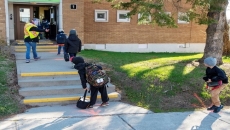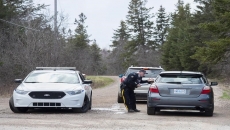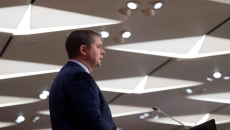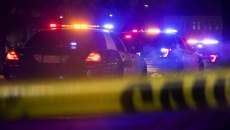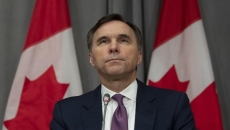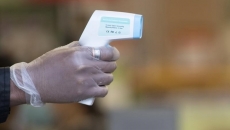Anti-Asian racism has spiked since COVID-19 forced B.C. into a state of emergency in March and Vancouver police say that's driven an increase in hate crimes overall.
Howard Chow, the department's deputy chief constable for operations, said investigators have opened 29 files involving anti-Asian racism since March, a "staggering" increase from four files in the same time period last year.
"This has been going on since post-COVID. I think some 90 per cent of the incidents we're talking about happened after the pandemic was announced," said Chow, noting other cities across North America have reported a similar trend.
There have been 77 hate-associated police files in 2020, said Chow, and another 10 active files from April and May could later be classified as hate crimes.
By comparison, 51 hate crimes had been reported by this time last year, he said.
Deputy Chief Const. Laurence Rankin said the alleged offences range from racial slurs and vandalism to assault.
Suspects have been identified in six of the 29 cases, although no charges have been laid yet, he added.
Ten of the files have concluded due to lack of evidence or suspects, but Rankin said they could be reopened in future.
The department has stepped up its engagement with the Chinese community in Vancouver to raise awareness of what constitutes a hate crime and how victims can connect with police, said Chow.
Additional officers are patrolling Chinatown and more public safety cameras have been installed, he said.
Racist incidents and hate crimes are adding to people's stress and fear during an already uncertain time, said Chow, who identified himself as first generation Chinese Canadian.
"Hate is insidious. Right now, it's anti-Asian, but it spreads like a virus and impacts us all," he said, while urging anyone who sees racism to report it to police.
Chow also addressed potential offenders, saying half of Vancouver's residents are culturally diverse.
"They're not a minority. It's who we are," he said.
The racist slurs and assaults have taken place as people were going about daily life in parks, grocery stores and on public transit, said Chris Lee, the director of the Asian Canadian and Asian migration studies program at the University of British Columbia.
"I think everyone who feels like they could potentially be racially profiled at this time is thinking twice about their safety," said Lee, pointing to an alleged assault last week against an Indigenous woman whose attacker uttered anti-Asian slurs.
Lee said racism is under-reported and the police files represent a fraction of the actual number of racist incidents that occur in Vancouver, but the recent spike helps paint a clearer picture of the widespread nature of racism in the city.
"I think for a lot of families (it's) going to mean conversations around, you know, should our parents be out, should our elders be out, especially those who are most vulnerable?"
Premier John Horgan has also condemned rising racism in the wake of the pandemic and appealed to citizens to stand up to racist behaviour when they see it.
"Hate has no place in British Columbia. We are a strong and vibrant economy and a strong and vibrant community because of the diversity that is what makes up this great province," he said on Wednesday.

